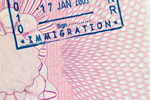Brit expats in Spain urged to come clean on assets

Brit expats in Spain urged to come clean on assets
As with tax requirements all across the world, the new Spanish regulations seem confusing but must be followed. Basically, all Spanish tax residents including expatriates who own overseas assets totalling more than €50,000 will need to comply. For example, a retired British couple living in permanently in Spain whilst owning two properties in the UK, receive UK based pensions and have open British bank accounts are regarded as tax resident in Spain. Both of them now need to submit the Spanish tax form 720.
Tax residency is applied if and individual spends over 183 days in the country within a calendar year, has Spain as his or her centre of financial interest and has underage children and/or a spouse living in the country. The three reporting categories are immovable property, investments and bank accounts and there’s an obligation to report every asset held in each category should the value of total assets in each be more than €50,000. Individuals have until March 31 2020 to file their submissions, with late filing subject to hefty penalties.
If you’ve filed form 720 previously, you don’t have to file again unless the value of a named asset grew by over €20,000, a previously filed asset has been sold or you got another asset. Unfortunately, fines for late or mis-filing are disproportionate at best, starting at €5,000 per error and a minimum of €20,000 for each asset group. Worse still, the penalty for unpaid income tax is a stunning 150 per cent. There’s no way to get around this as, since 2018, your home country tax office has been feeding details of all your assets to the Spanish tax office as well as totals of reported overseas income.
Related Stories:
- Is Kuwaitization the unintended result of the oil price crash? - July 20, 2020
- Expats in Malaysia still banned from overseas travel - July 17, 2020
- HSBC Asia to cut back on internal expat relocations - July 16, 2020
- Tips on integrating for newly-arrived expats - July 15, 2020
Latest News:
- Tips on a trouble-free relocation as an expat overseas - July 20, 2020
- Expats find peace in the covid-19 refuge of Dahab town - July 20, 2020
- Is Kuwaitization the unintended result of the oil price crash? - July 20, 2020
- Expats unhappy abut changes to Korean points-based visa system - July 17, 2020
- Chiang Mai and Bangkok no longer bargain locations for expats - July 17, 2020
- Expats in Malaysia still banned from overseas travel - July 17, 2020
- Vietnam welcomes expats to its safe, affordable lifestyle - July 16, 2020
- Asian tiger economies reach out to expats in Hong Kong - July 16, 2020
- HSBC Asia to cut back on internal expat relocations - July 16, 2020
- Tips on integrating for newly-arrived expats - July 15, 2020


